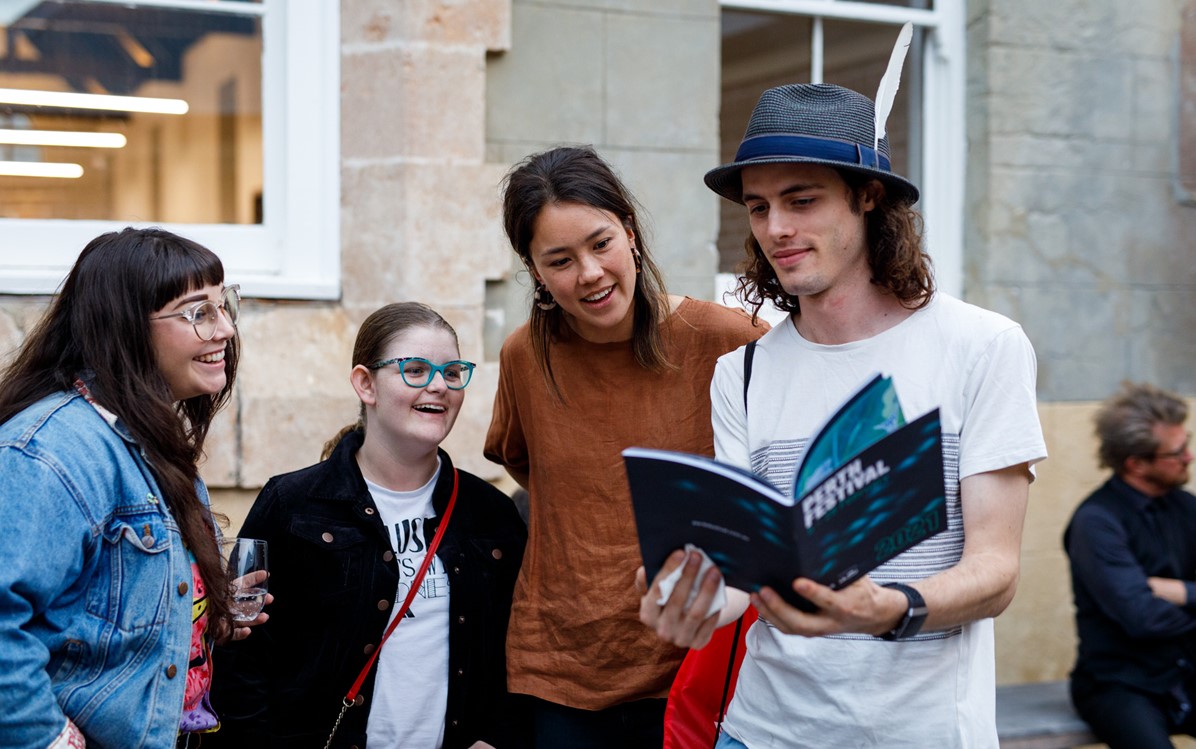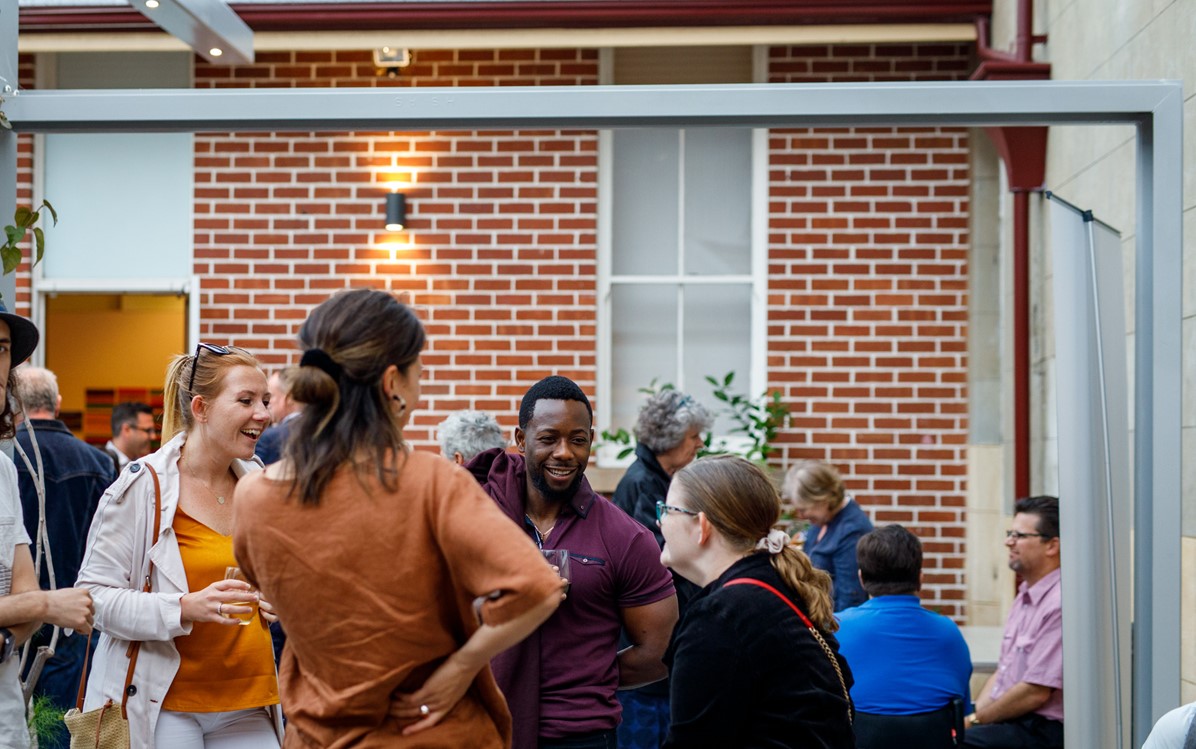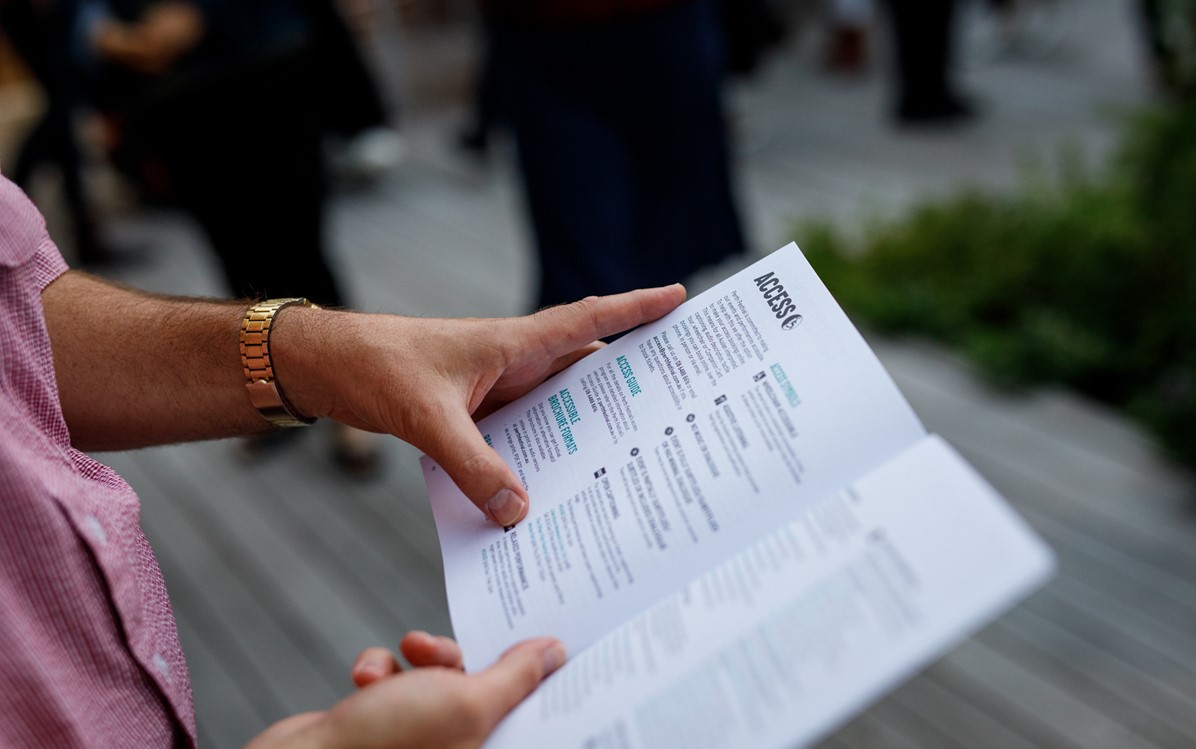
My experience at an access committee meeting as a disability advocate
Written by Layne Dixon, our Arts Management Trainee and an avid disability advocate
Apart of my traineeship, at the start of this month I got invited to an Access and Inclusion Advisory Committee meeting. Every third month Perth Festival hosts this committee to give people living with a disability an opportunity to speak on the behalf of people living with a disability.
What is the Access and Inclusion Advisory Committee?
Our Access and Inclusion Advisory Committee is built up of 9 committee members, based in Western Australia with lived experience or with a disability. Formed by Perth Festival, they meet every third month (4 times a year) to create a more accessible Festival for people with a disability. This committee meets up and provides us, as the staff of Perth Festival, feedback on our Disability Access and Inclusion Plan – DAIP, which is updated twice a year and re-written/reviewed every four years. Also, these committee members provide us with feedback on the access for our workshops and events throughout the Festival season, as well as providing us feedback on building venues that are accessible for people with a disability.
For further information this you can visit our website.

As a young disabled person I didn’t know about this committee until I started working at Perth Festival. Ellie, our Community Engagement Coordinator invited me to the last committee meeting of the year, and the final one for Perth Festival to receive input prior the season which starts on the 5 Feb 2021. Not long after I got into the meeting, I loved what the committee was doing to make Perth Festival more, and more accessible for people living with a disability.
In the meeting we mainly discussed the access around one of the events in our program, Whistleblower. This is an event that people can purchase an interactive ticket to be a performer for the evening. I have found this really exciting, especially because I haven’t really heard of people purchasing interactive tickets before. As this was in the program, we discussed how the interactive ticket will be accessible for people with a disability. Some of the things that we talked about for the performance were:
- When people purchase an interactive ticket they can specify if they’ve got a disability or not
- If there was a script, making sure it is printed in Braille for people who are blind or vision impaired
- If there was someone who is hard of hearing or Deaf as a part of the interactive audience, make sure that they have an Auslan interpreter on stage with them for communication and another one in the audience to say to the audience what the person is speaking about
- People with Autism and anxiety are provided with an outlined script or a basic document explaining what’s happening on the night. This to inform people that have brought the interactive ticket about what they’re doing on the night of the performance
- People that have an interactive ticket can sit closer to the front of stage, with doing this they can easily come on and off the stage when needed
- Assistance on stage for people that are blind or vision impaired

Before this committee meeting I had a rough idea of what accessibility was in venues, but now I know that accessibility is so much more than an Auslan interpreter on stage. I’m quite thankful to be invited to this, and by going to this my idea of ‘what access looks like’ has developed even more and changed my way of thinking as a disability advocate.